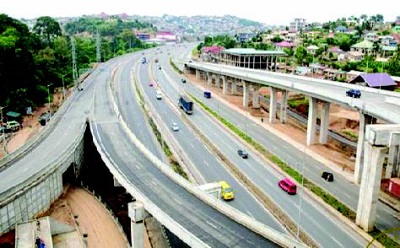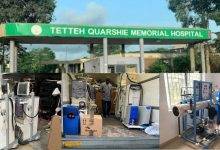Ghana’s Genuine Efforts To Achieve Development Since Independence: A Concise Critical Appraisal

That Ghana’s efforts towards the achievement of a meaningful and realistic development since attaining independence had been that of an uphill and downhill process, cannot be disputed by any sincere, authoritative and knowledgeable political scientist or cultural critic.
The name Ghana, and for that matter, the country Ghana, is synonymous with greatness, power, opulence and prosperity in the African situation.
The immediate foregoing assertion had been the case in the annals of Ghana as the star of Africa in the arena of politics, human rights and freedom since long time ago.
Naturally endowed with an inexhaustible natural resources; and in addition, possessing an adequately developed human resources, Ghana had been in the fore-front of Africa’s consistent and persistent quest and aspirations for the achievement of complete political and economic freedom from neocolonialism and exploitations by Euro-America and also quite recently, by China!
Chronologically, Ghana gained her political independence on 6th March, 1957; and had since then been the loud and outstanding voice for the total emancipation of the African continent from the forces of colonialism, imperialism and neocolonialism by Europe.
Although, the fact is that Africa is the richest continent in the world,endowed with inexhaustible natural resources; paradoxically, she had been a victim of European and American exploitations; and quite recently, China has also jumped into the band wagon of exploitation of Africa; hence the poverty, suffering; and the underdevelopment of the African continent up to the present time of recorded history.
Before, I continue with my presentation, let me try to explain what the idea of development is all about or entails.
The New Webster Dictionary of The English Language, International Edition explains the word development as follows: The act of developing, evolution of an organism of new fact or situation adj. developmental.relating or incidental to growth.
Also, the New International Comprehensive Dictionary of the English Language, development is explained as follows: The scene of changes by which an individual, plant or animal passes from a lower to a higher of being or from embryonic condition to maturity.
Based on the explanations of the word development from the two Webster dictionaries it can be implied that development is of two dimensional connotations: first, development is physical or material. Second, development is spiritual, nonphysical or material.
Ideally, development should be both material and spiritual. Development which is continual of all countries, must be both material and spiritual to make it complete, real, meaningful and blessing to human beings.
The most developed and also developing countries of the world today must exhibit these two dimensional aspects of development in order to make development complete and whole.
In the Ghanaian situation, as far as development is concerned one can say that under the inspiring and dynamic leadership of the first president of Ghana, Osagyefo Dr. Kwame Nkrumah of blessed memory, Ghana started to develop physically or materially by following a fast developmental process, which was unmatched on the African continent, that was geared towards the achievement of a realistic and meaningful development and prosperity for Ghanaians.
With Nkrumah’s genius, unique vision, foresight and initiatives, Ghana was on a high accelerated pace for development and prosperity.
This characterized and manifested in gigantic developmental programmes such as the Akosombo Hydro-Electric Dam across the River Volta, The TemaHarbour, The Tema Oil Refinery, The Tema Township and Industrial growth, The Tema Motorway linking Accra, the capital city of Ghana, The expansion of the old Takoradi harbor for the exportation of Ghana’s agricultural products such as cocoa, timber, coffee, rubber etc, the building of the Kade Matches Factory, The Atomic Energy Programme at Kwabenya in Accra etc.
Nkrumah really and practically demonstrated a rare ingenuity and gifted leadership that was to propel Ghana to experience fast economic growth, development and prosperity.
Alas! Unfortunately, this complimentary and brilliant start by Ghana to develop and to experience economic growth and prosperity was halted abruptly by a military coup de tát that overthrew Nkrumah’s government on 24thFebruary 1966.
Thus, Ghana was set aback on the clock of progress as almost all the developmental programmes that was began by Nkrumah were abrogated and abandoned to the disadvantage and detriment of the country in her march towards the achievement of development and prosperity. Ghana’s smooth and fast developmental process was negatively and terribly affected as it became a stand-still situation after Nkrumah’s overthrow.
The National Liberation Council (NLC) military government which assumed power after Nkrumah did not make any impact in developmental planning for the country, as it was preoccupied with political vindictivenessand persecutions against members of Nkrumah’s government, long and endless talks about what went wrong during Nkrumah’s era of rule of the country etc.
Ghana took off again on the path of development when Dr. Kofi AbrefaBusia of the Progress Part (P.P) took office in the governance of the country in September, 1969.
Dr. Busia’s most significant development programme of developing the rural parts of the country did not see the light of the day as it was nipped in the bud by another military coup de tát led by colonel IgnatiusKutuAcheampong, who emerged on to Ghana’s political scene on 13th January, 1972 to declare a revolution in the country.
This situation in Ghana’s political affairs was another setback on the clock of progress as the country was to start all over again in development planning.
Colonel Acheampong’s most significant programme dubbed “Operation Feed Yourself” was very successful. And this made Ghana to become self-sufficient in food production and have surplus for exportation to other countrys. This significantly enhanced Ghana’s growing economy.
However, Colonel Acheampong’s National Redemption Council (NRC) earnest and genuine efforts to move the country forward in development suffered a decline after 1975, when Ghana began to retrogress as a result of an upsurge of wide spread corruption which negatively affected Ghana’s economy, bringing it into shambless and chaos, as Ghana could not hold her head above the waters in her developmental process.
In fact, this was a big blow to Ghana in her efforts to experience development and prosperity. It was a period of an orgy of cheating, looting of government, funds by many Ghanaians holding various public offices within the government and outside it. It was a period that one can be aptly described as decay and stagnancy of the country.
General KutuAcheampong’s genuine and sincere efforts to introduce a novel concept of governance of the country known as “Union Government” (UNIGOV)Army, Police Civilian administration was totally rejected and ridiculed by Ghanaians, particularly from the quarters of Ghana’s intelligentsia and academia, who described this type of government as nebulous and totally impracticable; because Ghanaian intellectuals argued that, it has no iota of precedence or origin anywhere in the world.
General Acheampong’s inability to hold on to power as the outcry of Ghanaians soared up due to the economic hardships and misery prevailing in the country, finally got himself booted out of office by his own members of his government, the Supreme Military Council (S.M.C) in 1978.
This situation worsened matters and within a space of one year rule under Ghana’s new ruler Lt. General Akuffo of the Supreme Military Council (S.M.C) the country was plunged into another revolution with the appearance of FT. Lt Jerry John Rawlings on to Ghana’s political scene on 4th June, 1979 with his formation of The Armed Forces Revolutionary Council (AFRC).
FT. Lt Jerry John Rawlings June, 4th 1978 revolution existed only, for three months! Jerry John Rawlings avowed aim was to eradicate the entrenched corruption in the Ghanaian society and to usher in a new era of sanity, decency and order on the Ghanaian political scene.
Thus, the Armed Forces Revolutionary Council (AFRC) handed over power to another civilian government rule under the leadership of President HillaLinman of the People’s Nationalist Party (PNP).
Dr. Linman’s government did not make any impact as the entrenched and widespread corruption in the Ghanaian society continued unabated.
Consequently, this paved the way for FT. Lt Jerry John Rawlings to emerge on the Ghanaian Political scene for the second time on 31st December, 1981 to launch another revolution in Ghana, the 31st December revolution.
FT. Lt Jerry John Rawlings continued with his avowed aim of changing the sordid and unpleasant Ghanaian situation for the better with the formation of the provincial National Defence Council (PNDC) to effect the change.
An Objective, systematic critical assessment and evaluation of the long period of PNDC rule of the country under Jerry John Rawlings shows a measurable positive gains in Ghana’s developmental process.
The fourth Republican Constitution of Ghana which came into operation in the Ghanaian political situation in 1992 saw Jerry John Rawlings assuming rule of the country again for the third time in succession.
By a systematic and unbiased critical analysis and evaluation of the performance of His Excellency Jerry John Rawlins in the leadership of the country, it can be said that Ghana has made significant progress in her developmental aspirations, although there had been occasions of wrongs, blemishes and negativity which raise eye brows of some concerned decent living Ghanaians in the context of Ghana’s genuine efforts to achieve meaningful and realistic development and prosperity. Despite this blot in the era of rule by Jerry John Rawlings of Ghana, one can say that the era of rule of Ghana under Jerry John Rawlings was highly balanced on the scale of measure for Ghana’s positive achievements in her developmental process.
The next era of Ghana’s developmental process dawned during the eight-year rule of His Excellency John AgyekumKufour. By critical analysis and evaluation, this era of Kufour’s rule of Ghana can be said to be balanced on the scale of measure.
President Kufour handed over the button of leadership of Ghana to Professor Atta Mills, who had a very brief period of rule as he could not finish his first tenure in office and passed away; and John Mahama his Vice, assumed office of the rule of the country.President John Mahama term in office lasted eight years.
Without mincing words and compromise on President John Mahama’s rule of Ghana, one can say that John Mahama had a lot of weaknesses as a leader on effective governance of the country particularly, in the sensitive area of unbridled propensity for corruption by many Ghanaians and consequently, could not firmly put his feet down to check corruption which had become deeply entrenched in the Ghanaian society as a social canker.
However, in spite of these glaring weaknesses as a leader, President John Mahama can be credited on his genuine efforts to move Ghana forward in development and prosperity. Thus, Ghana experienced a measure of gains in her continued developmental aspirations under the rule of President John Mahama.
At present in the Ghanaian political situation His Excellency President NanaAkuffoAddo of the Nationalist Progress Party (NPP) is leading Ghana in democratic governance, for Ghana to experience development and prosperity; and is currently running his second tenure as the president of Ghana.
By a systematic analysis assessment and evaluation of President AkuffoAddo since he took the Oath of office to rule Ghana, one can say that President AkuffoAddo has initiated and introduced a lot of changes that will transform Ghana and help her in her continued aspirations to experience optimum economic growth, development and prosperity.
For example, the ongoing Ghana Beyond Aid Agenda will greatly help Ghana to develop and prosper; and all well-meaning and concerned Ghanaians must see this developmental programme as crucial for Ghana to achieve greatness and opulence as the star of Africa.
The free senior high school education delivery system initiated by President AkuffoAddo will definitely yield great benefits to Ghana in her developmental process. The revamping of the National Health Insurance Scheme, The introduction of the Ghana Card etc will also contribute greatly to enhance Ghana’s developmental aspirations.
So far, as far as Ghana’s developmental process is concerned, President Nana AkuffoAddo had performed creditably in his genuine efforts to move Ghana forward in development.
In conclusion, I am highly optimistic and I state categorically that, Ghana has hope as the star of Africa to move forward to experience realistic and meaningful development and prosperity for the rest of Africa to follow in her earnest and genuine desire to free herself from misery, exploitations, deprivations and under development. Ghana and Africa will succeed to become truly politically and economically independent. For Ghana and Africa have the potential to achieve this great and noble goal.
By Michael Akenoo; Theatre Critic


